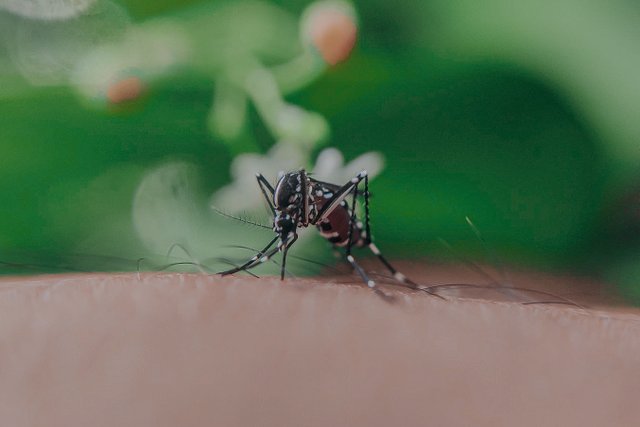
Source; pexels.com
A team of scientists in the United States of America found out the compounds in our blood which attracts mosquitoes - potentially this is paving a way for a drug that could mask out our tempting flavour.
The researchers used a genetically modified females to find out which neutrons fire when they Only female mosquitoes feed on blood, that blood they fed on, they usually need it to enable their eggs to develop, primarily, they survive on nectar like thousands of other insect species.
Regardless of that, their blood - sucking habits it's what makes them the deadliest animals on the planet to we humans, killing over one million people every single year through diseases like malaria, dengue and yellow fever.
The researchers were able to trick the mosquitoes into switching from the nectar feeding mode to the mode for blood feeding by giving them a mixture of 4 compounds which mimic the flavor of blood.
It was containing glucose, sodium chloride, sodium bicarbonate and adenosine triphosphate - An energy molecule to living cells .
The researchers know when the mosquito is in blood feeding mode or nectar feeding mode according to parts of its syringe- like mouth that it uses to drink.
A fluorescent tag in the genetically modified insects glowed when there was an activation of a nerve cell, allowing the researchers to track which of the nerve cells lit up when they were offered different meals.
Only a single subset of neutrons were activated by blood, including both real blood and the researchers synthetic mix.
Veronica Jove, one of the lead in the research study said : " If mosquitoes weren't able to detect the taste of blood, in theory the couldn't transmit diseases ".
Leslie Vosshall, who heads the laboratory at the Howard Hughes Medical Institute at the Rockefeller University, said the investigation could eventually lead to oral mosquito repellents which would interfere with the taste for blood.
But she said it could be impossible to understand exactly what we humans taste like to mosquitoes.
She made a comparison, trying to give a description of the way a honeybee sees a flower in ultraviolet hues invisible to we humans, or how a bat sees through sonar wave we can't hear.
"There is nothing like this in human experience " she said.